Can a Power Surge Damage an Outlet? (Understanding Electrical Risks)
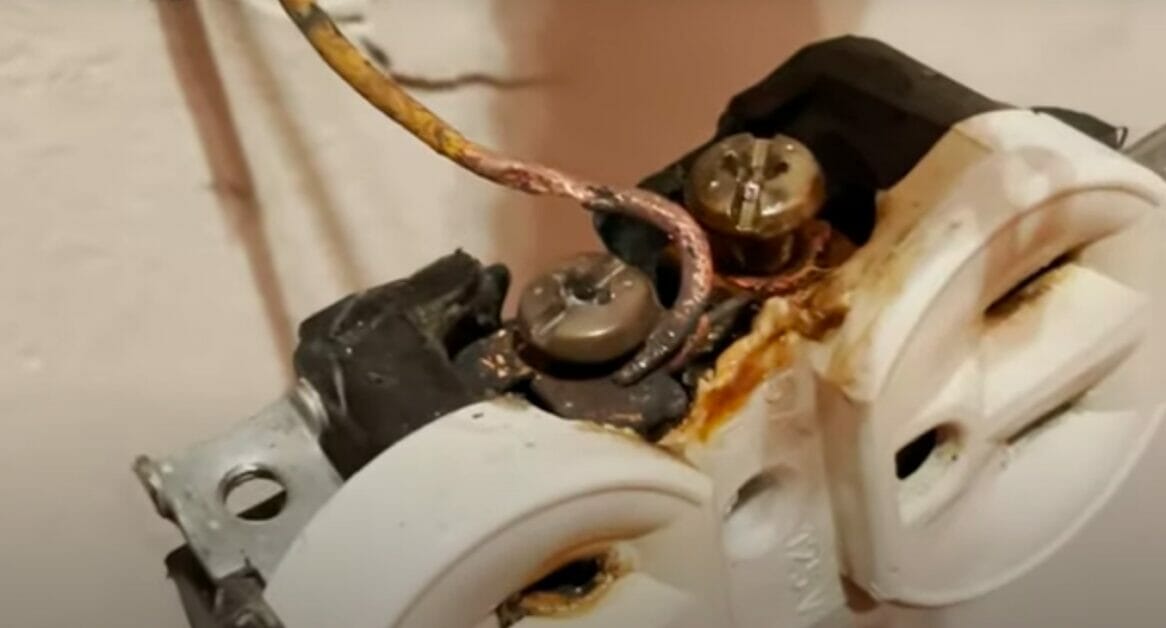
Picture this: you’re lounging at home, relaxing after a long day, when suddenly – bam! A power surge hits, and you’re left wondering, can this damage my electrical outlets?
Outlets can be damaged by power surges, leading to potential hazards. When a power surge happens, it’s not uncommon for electrical outlets to become overloaded and overheated by the excessive current, which can indeed cause damage to the outlet.
But that’s not all! Stick around as we dive deeper into the world of power surges, exploring the causes and potential damages and how to protect your outlets from these unpredictable events.
How Power Surges Affect Outlets
Physical Damage
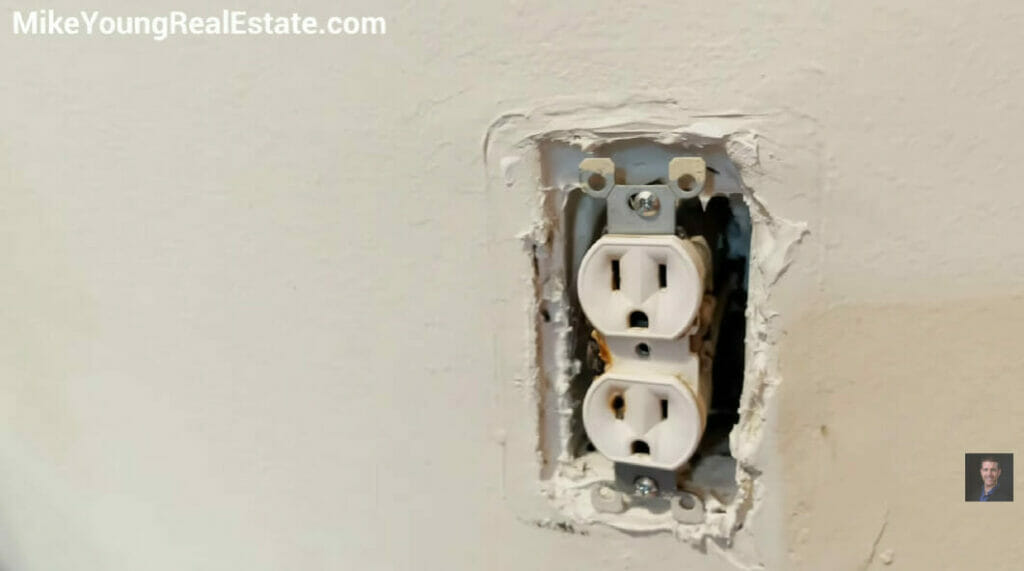
Do you know what’s wild? Lightning strikes can cause a sudden, brief rise in voltage, a power surge. One moment you’re relaxing, enjoying your favorite show, and the next – boom! Your outlet is fried.
Now let me tell you, I’ve seen all types of outlets, and power surges can cause some real physical damage. We’re talking overheating, melting, and even electrical shorts.
It’s important to look closely at your outlets after a power surge, especially if you notice discolored or burnt areas.
Functional Damage
But it’s not just the physical damage you need to worry about. Power surges can also mess with how your outlet functions.
Smaller, repeated surges can fly under the radar; over time, they wear down your electronics, shortening their life span. Trust me; it’s no fun when your computer or stereo finally bites the dust.
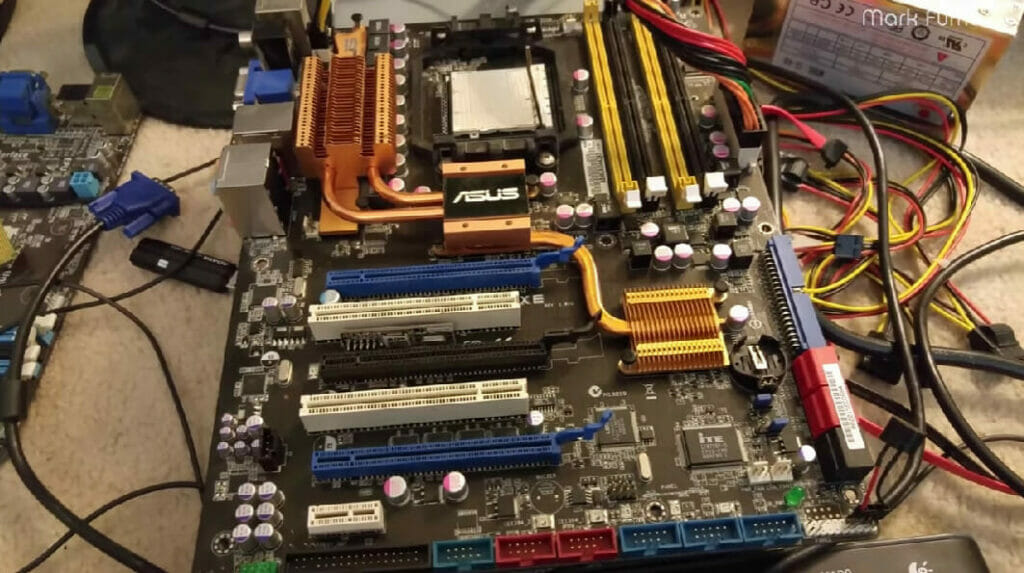
So, what should you do about it? We’re going to talk about that later in this article.
Types of Power Surges and Their Potential to Damage Outlets
| Type of Power Surge | Explanation | of Potential Outlet Damage |
|---|---|---|
| Lightning Surge | A lightning surge occurs when lightning strikes a power line or a building’s electrical system. This can cause a massive surge in voltage that can damage appliances and electronics connected to the power grid. | Lightning surges can cause outlets to melt or burn, leaving visible damage that can compromise the safety and functionality of the outlet. |
| Voltage Surge | A sudden increase in voltage occurs when there is a sudden interruption in the flow of electricity. This can be caused by lightning strikes, power outages, or electrical equipment switching on or off. | Voltage surges can cause damage to outlets over time, leading to wear and tear that can compromise the safety and reliability of the outlet. |
| Electromagnetic Interference (EMI) | Occurs when electronic devices emit electromagnetic waves that interfere with other electronic devices. | Like EMI, RFI is unlikely to cause direct damage to outlets. Still, it can cause electronic devices to malfunction or fail, indirectly affecting the safety and functionality of the outlets that power them. |
| Radio Frequency Interference (RFI) | A brownout is a type of power surge that occurs when there is a drop in voltage on the electrical grid. This can cause lights to dim or flicker, damaging electronics sensitive to voltage fluctuations. | Radio frequency interference (RFI) is similar to EMI but specifically refers to the interference caused by radio frequency waves. This can be caused by cell phones, radios, or wireless networks. |
| Brownout | Blackouts are unlikely to cause direct damage to outlets. Still, they can suddenly cause electronic devices to shut down, indirectly affecting the safety and functionality of the outlets that power them. | Brownouts can cause outlets to wear out more quickly, leading to damage that can compromise the safety and reliability of the outlet over time. |
| Blackout | A blackout is a total loss of power on the electrical grid. While not technically a power surge, blackouts can still cause damage to electronics if they are suddenly switched off without warning. | Blackouts are unlikely to cause direct damage to outlets. Still, they can cause electronic devices to shut down suddenly, indirectly affecting the safety and functionality of the outlets that power them. |
Common Causes of Power Surges
Lightning Strikes
One of the most well-known sources of power surges is lightning storms.
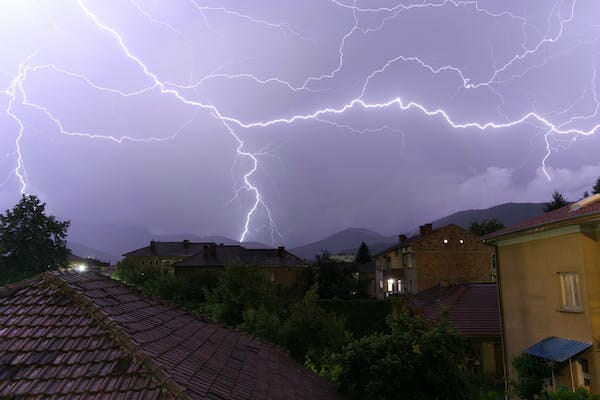
If a lightning bolt strikes electrical equipment or nearby systems such as telephone, cable, or power lines, you can bet it’ll send a power surge to your home.
This type of surge can cause extensive damage, so it’s crucial to take preventive measures during stormy weather.
Appliance Malfunctions
Another common cause of power surges can be traced to appliance malfunctions.
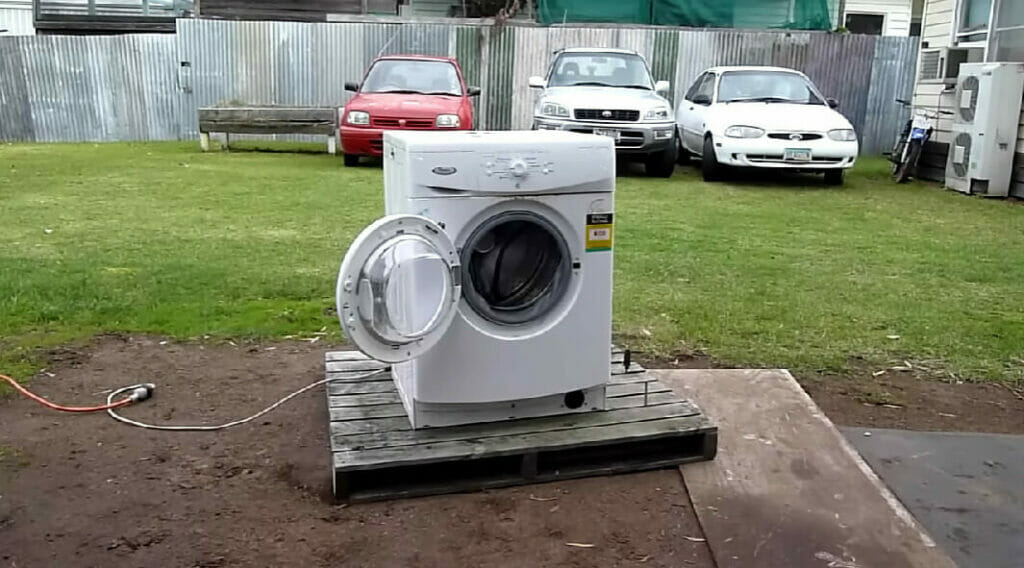
If your home uses an appliance with a high level of energy output, any issues with the appliance might create a surge of power.
Regularly maintaining and monitoring these high-powered devices is a good idea to avoid surprise power surges.
Power Outage/Blackout
You might not realize it, but when the power comes back on after a blackout or outage, it can lead to a surge.
As the electricity returns, there’s often an initial spike in voltage that can potentially damage your electronic devices.
So, unplugging sensitive equipment during an outage is smart to prevent damage from a possible spike.
Faulty Wiring
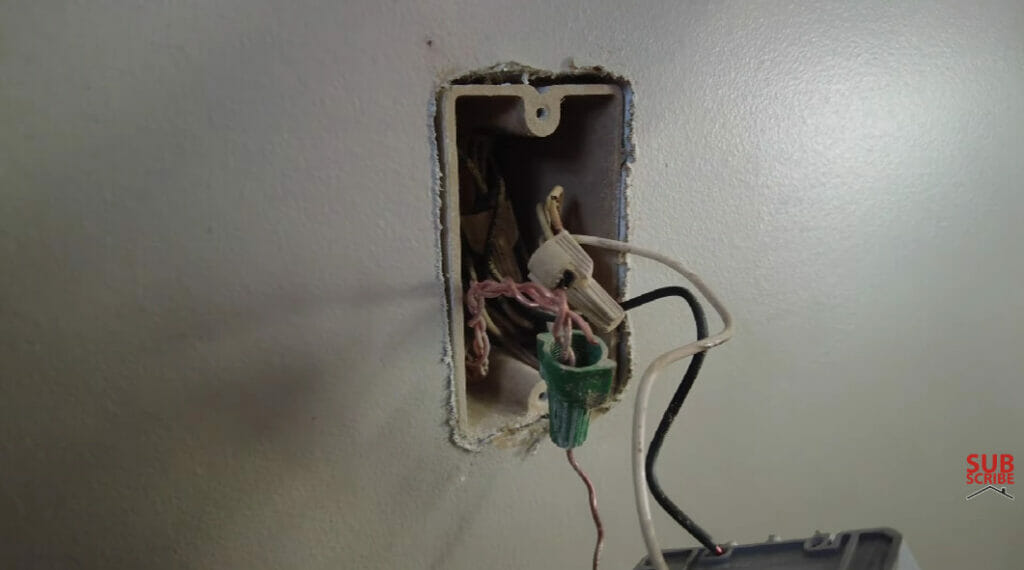
Video | Top Homeowner
Another sneaky cause of power surges is faulty wiring. Subpar electrical work or simple wear-and-tear on your home’s wiring can lead to inconsistent power flow, increasing the risk of power surges.
Look for any signs of wiring issues, like flickering lights or buzzing noises, and call a professional electrician for an inspection if needed.
Electrical Overload
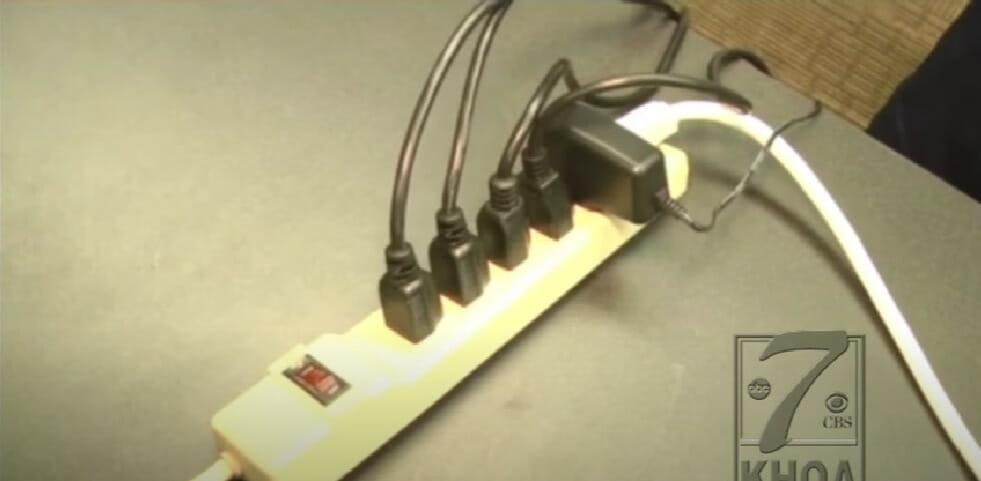
Last but not least, the pesky electrical overload. If you’ve got too many appliances or electronic devices plugged into the same circuit, increased power drawn can result in voltage spikes and surges.
To avoid this, ensure you’re not overloading extension cords and distributing your devices across multiple circuits if possible.
Signs of Outlet Damage from a Power Surge
Discolored Outlets
When dealing with power surges, one of the first things you may notice is the discoloration of your outlets.
If you see any change in their color, it could indicate that they got a bit too friendly with a power surge. The outlet may appear discolored due to overheating, which isn’t good, trust me!
Burnt Smell
You know, another telltale sign is that unmistakable burnt smell. Yep, outlets subjected to power surges may emit a burning odor, indicating potential damage.
If you notice this smell coming from your electrical outlet, don’t ignore it! Address the issue immediately before things get out of hand.
Electrical Devices Not Working
If your lovely electrical gadgets, such as lights, are flickering or dimming for no apparent reason, it could indicate a power surge.
And believe it or not, these surges can also cause your precious devices to break down too soon!
So, keep an eye on your electronics – if they’re acting up, you might want to check your outlets for any power surge-related damages.
How to Protect Your Outlets from Power Surges
As someone who’s been around the block a few times with home improvement projects, I can tell you that protecting your outlets from power surges is crucial.
Not only can a surge damage your electronics, but it can also put your home at risk. So, let’s look at some practical steps to safeguard your outlets.
Use Surge Protectors
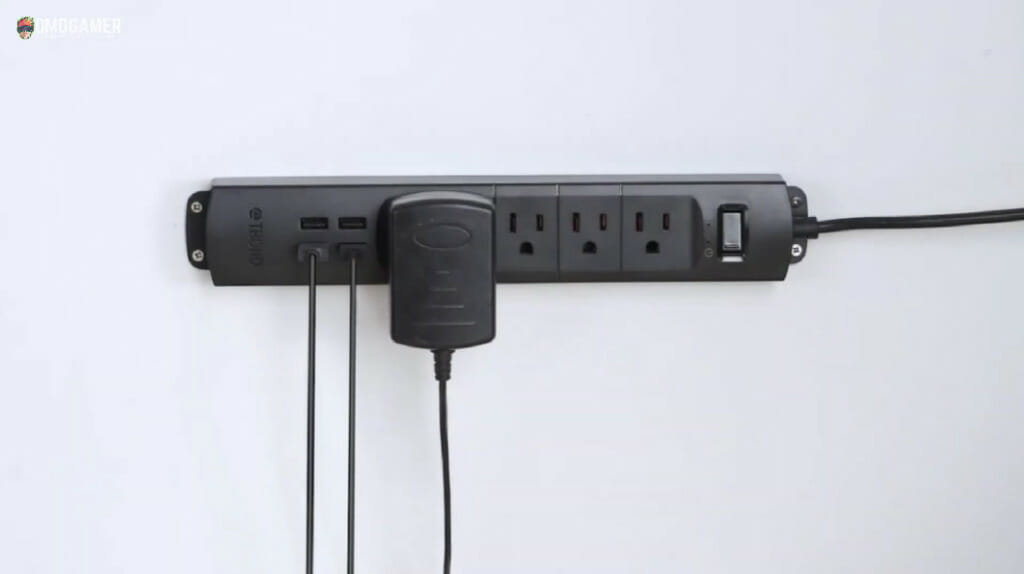
One smart move to protect your outlets is to plug your electronics into surge protectors. These handy devices will divert any extra voltage, ensuring a consistent power level for all the connected devices.
I always recommend using surge protectors for sensitive electronics like TVs, computers, and gaming consoles.
Install Whole-Home Surge Protection
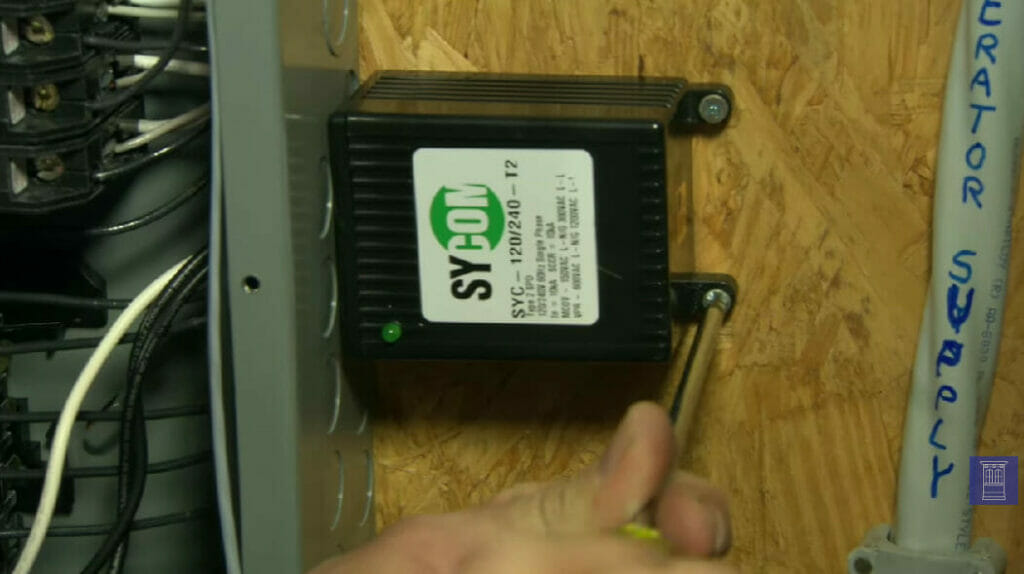
For an extra layer of security, consider installing a whole-home surge protection system.
This system works at the main electrical panel level and helps keep your home safe in case of a significant power surge, such as from a lightning strike.
Trust me when I say you’ll sleep more soundly, knowing your home is protected against large-scale power surges.
Proper Grounding
Ensuring your home is properly grounded is another critical step in protecting your outlets from power surges.
A good grounding system, in combination with point-of-use surge protection devices (SPDs), can make all the difference when it comes to keeping your electronics and appliances safe.
By protecting your outlets from power surges, you’ll be proactively safeguarding your valuable electronics.
Remember, as they say, an ounce of prevention is worth a pound of cure. So, put these tips to use in your home, and rest easy knowing that your outlets are ready for whatever comes their way.
Wrapping Up
Power surges can damage an outlet. Hence, it’s important to understand these pesky surges, their causes, and the potential aftermath.
In my experience, I’ve seen a fair share of gadgets and devices fried by surges—even entire circuit boards.
It’s not a pretty sight. The good news? There’s something we can do to protect our outlets and appliances.
Investing in some quality surge protectors is a smart move. They can help you avoid costly repairs or safety hazards in the long run. Remember, folks—prevention is the best form of protection.
References
Organizations:
- “Surge Protective Devices Committee” by IEEE Standards Association: https://site.ieee.org/pes-enews/2014/09/01/surge-protective-devices-committee/
Video References:
Mike Young Real Estate
Aussie50
Mark Furneaux 2
Top Homeowner
OMGGamer
This Old House
KHQA
